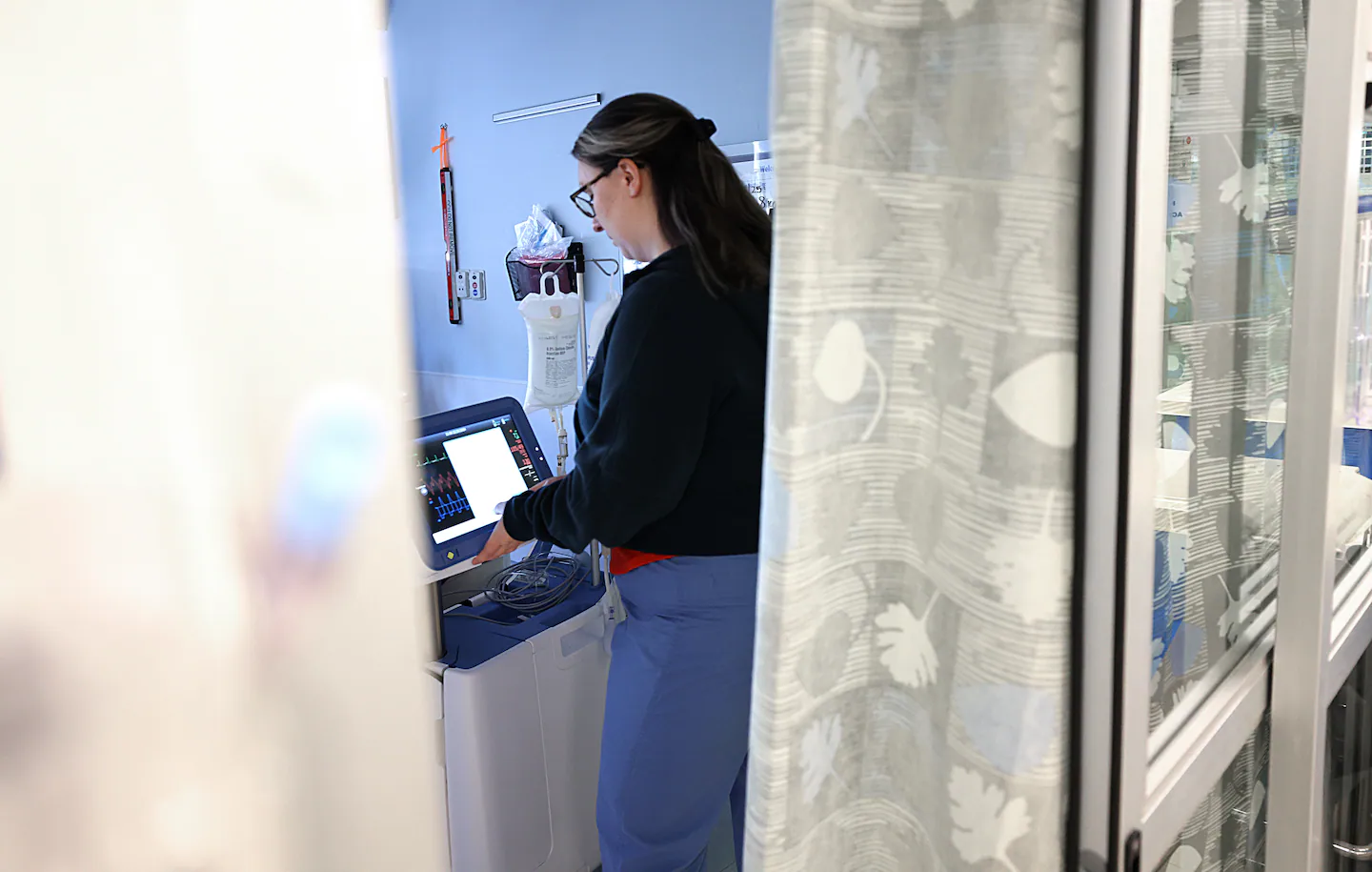Copyright The Boston Globe

Linda Moslow was certain she was having a heart attack. Anxious, unable to sleep, and feeling like she was burning up, she called her doctor, who dismissed her concerns. It would take two more years of suffering through mystifying “roller-coaster” health issues before her gynecologist prescribed a patch with estrogen to help ease the havoc caused by Moslow’s ebbing hormones. She was going through menopause. The life-changing experience inspired Moslow to form a support group five years ago for other menopausal women in her New York community. But she didn’t stop there. Working with her husband, Jeff, who chairs Tufts’ Board of Trustees, Moslow invited six powerful women, including the dean of the university’s school of medicine, to a brainstorming meeting around her kitchen table earlier this year. There, the Tufts Women’s Health and Menopause Initiative was born. With a $4 million donation from the Moslows to fuel its launch, the new initiative unites the university’s schools of medicine and nutrition with its network of hospitals, urgent care centers, and doctors’ offices. The goal is to spur more research into menopause, increase medical training around the transition, and improve the system’s menopause care. “If I’ve learned anything over the last 15 years of going through this,” Linda Moslow, now 60, said, “if we don’t change our medical system, as women, we don’t stand a chance.” Amid a torrent of federal cuts to health care and research, an influx of private funding, much of it from women, is spurring new efforts to study and treat the debilitating but often brushed-aside symptoms of menopause, as well as the elevated risk for chronic conditions, such as heart disease and thinning bones, that are linked to it. Most women go through menopause between the ages of 45 and 55 but often experience symptoms for several years before that, including mood changes, sleep problems, hot flashes, night sweats, trouble concentrating, and joint aches. Some treatments are available. For example, hormone patches can help with night sweats and sleep disruptions, but not all women can use them. A new, non-hormonal drug, Lynkuet, was recently approved for hot flashes and night sweats, but considerable gaps remain. There is, for instance, no consensus on how to address digestive problems, which are also associated with menopause. “What we’re seeing is foundations that are led by women are stepping in to fill the gaps, which is fantastic,” said Dr. Stephanie Faubion, director of the Mayo Clinic’s Center for Women’s Health and medical director for the Menopause Society. The society just received two unsolicited $5 million grants, including one from a foundation co-led by a woman, that will be used to improve menopause training for 25,000 doctors, nurse practitioners, and other clinicians over the next three years, Faubion said. “The demand is crazy,” she said, noting that the Menopause Society’s membership, made up largely of researchers, doctors, nurses, and other providers, has soared more than fivefold, to 12,000 members, in the past five years. A 2023 survey by the society of 100 OB/GYN residency training programs in the United States revealed that less than a third included menopause in their curriculum. The society and the new Tufts’ initiative aim to boost those numbers. But Faubion acknowledges that can be challenging. “Teaching people how to teach again when they’ve been teaching already, and having them change what they’re doing is hard,” she said. “So even if you hand somebody a new curriculum, getting it to be incorporated into the usual flow is hard.” The Tufts initiative plans to connect specialists in nutrition, cardiology, endocrinology, mental health, and sexual health through its provider network and telehealth programs, with patients being able to more easily tap into this expanded care in the coming months. Christina Economos, dean of Tufts’ Gerald J. and Dorothy R. Friedman School of Nutrition Science and Policy, and one of the leaders who helped create the initiative, said they aim to bring menopause training to the grassroots level. “Community health workers, for example, are trusted intermediaries who are out in the real world interacting with people,” she said. “They can be at community health centers, or they can be someone who’s working for the SNAP [food stamps] program.” At the same time, new research will be a prime focus, particularly studying how nutrition affects menopausal symptoms and raises risks for weight gain, type 2 diabetes, and other conditions. Among the areas of interest are what role a woman’s microbiome, the universe of bacteria, viruses, and fungi that live in our bodies, and particularly the gut, play in menopause. “There are things around the microbiome that we don’t really understand that well,” Economos said. The decline of estrogen in menopause can also increase blood sugar levels, raising the risk for type 2 diabetes. “Can we incorporate technology and use continuous glucose monitors for those who are struggling with their metabolism and their glucose being thrown off during this period,” Economos said. Dr. Helen Boucher, dean of the Tufts University School of Medicine and another leader who helped create the initiative, said researchers are still striving to answer myriad questions involving menopause’s impact on mental health, metabolism, and more. “What is the best way to address things like mood disorders? How do we manage people’s heart and brain as they go through this change?,” Boucher said. “These are all things we know are affected by hormonal changes in aging, but we don’t know the best way to care for them.” At Beth Israel Lahey Health, another large health system in Massachusetts with hospitals, primary care practices, and research centers, a new training program funded by the Linde Family Foundation is helping Beth Israel’s first class of 30 health care providers study to be certified menopause care providers. Similar to the Tufts’ initiative, BILH aims to make comprehensive menopause care more widely available to patients in their facilities from southern New Hampshire to Cape Cod, as well as through telehealth. “There is a significant gap that we had noticed between the number of patients experiencing disrupting perimenopausal and menopausal symptoms, and the availability of clinicians who are within our system, but also beyond our system, who are adequately educated and equipped to provide effective care within primary care,” said Shannon Healy, a nurse practitioner who directs the system’s 250 nurse practitioners and physician assistants in primary care. Healy and a colleague, Wynn Gerhardt, a physician assistant, share a passion for improving care for women at midlife. They said the training grant they applied for, and won, seemed a no-brainer. “I’ve been treating women in primary care for 17 years, and it just was so clearly something that I could see over and over with my patients, that they just were not getting the kind of care and support that they needed,” said Gerhardt. Now 52, Gerhardt has a keen insight into the cascade of menopausal symptoms many of her patients are experiencing. “A lot of my patients have just aged with me,” she said. “So we’re all going through this together.”



